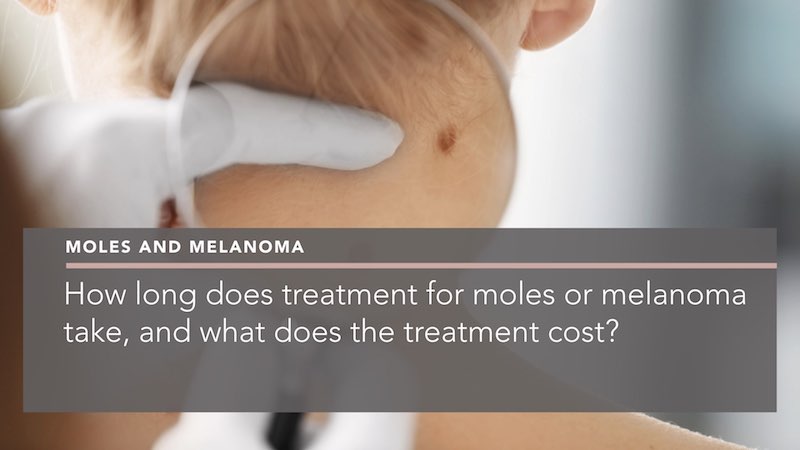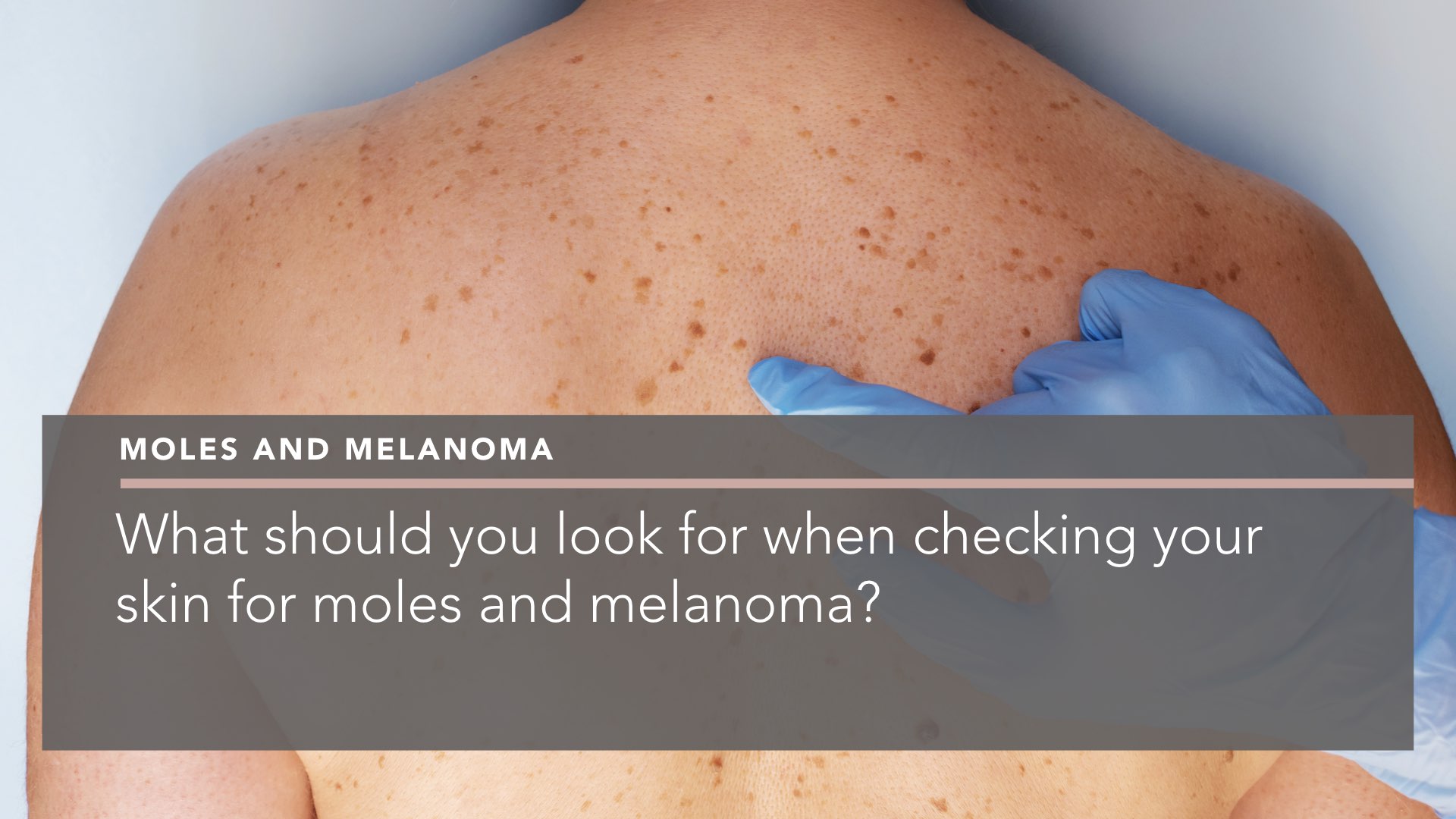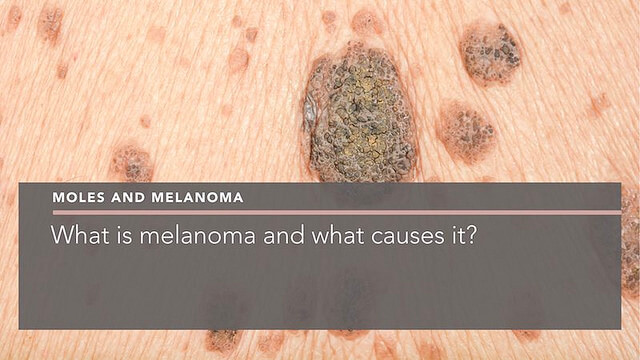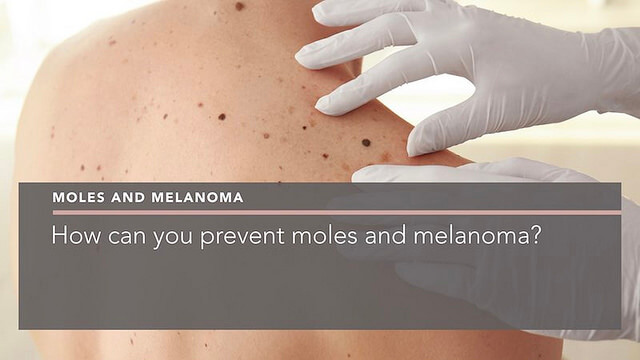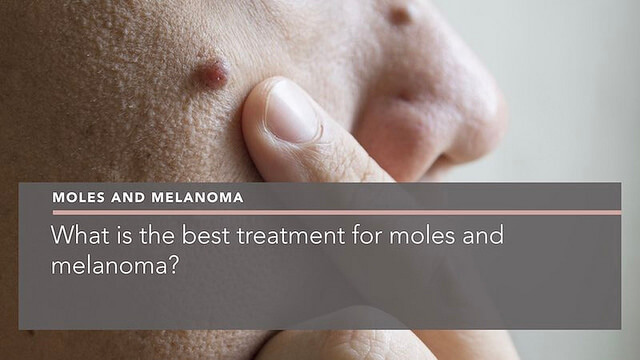Interview transcription:
We asked Penelope Pratsou if you can have melanoma without moles.
Is melanoma always associated with a mole?
Penelope Pratsou: Actually, in eight out of ten cases, melanomas are new pigmented lesions that suddenly appear. You can have moles from birth, or you can develop moles due to sun exposure, but they don’t necessarily turn into anything nasty at all.
If you do develop a large number of moles during your lifetime, and if some of those moles are a little bit unusual – I say that they haven’t “read the books” on how to be symmetrical and an even colour – then that can be a marker for the fact that your skin is prone to an increased risk of melanoma…
Penelope Pratsou: It doesn’t necessarily mean that one of those moles is going to turn into a melanoma, and that’s why really we would want to check your moles but necessarily remove all of them, even if they looked a little bit unusual.
If you notice that you have any of the symptoms or conditions that we’ve just discussed, we invite you to book a consultation with Dr Penelope Pratsou. She’ll be able to assess your situation and give you a personalised treatment plan.

About the author
Dr Penelope Pratsou | Consultant Dermatologist
MBChB, MRCP (UK) (Dermatology)
I’m Dr Penelope Pratsou, a skilled independent Consultant Dermatologist based in Berkshire. I have specialist expertise in the diagnosis and management of all skin cancers, and in performing mole checks. I’m a trained skin surgeon and remove skin cancers, moles, skin tags, cysts and warts.
I also have invaluable experience in dealing with all skin conditions, from the common skin complaints of acne, rosacea, eczema and psoriasis, to the rarer and more complex skin problems, having seen it all through years of NHS work.
After I obtained my Membership to the Royal College of Physicians, I undertook rigorous specialist training in dermatology, before being appointed as a Consultant Dermatologist at the Royal Berkshire Hospital, Reading. There, I helped set up and lead a busy clinic for the diagnosis and treatment of suspected skin cancer. I was also actively involved in supervising and training both dermatology and GP trainees.
Alongside my increasingly busy private practice, I have maintained an NHS practice in Oxford in order to continue to engage with challenging cases and to develop my specialist interest in skin allergy.

